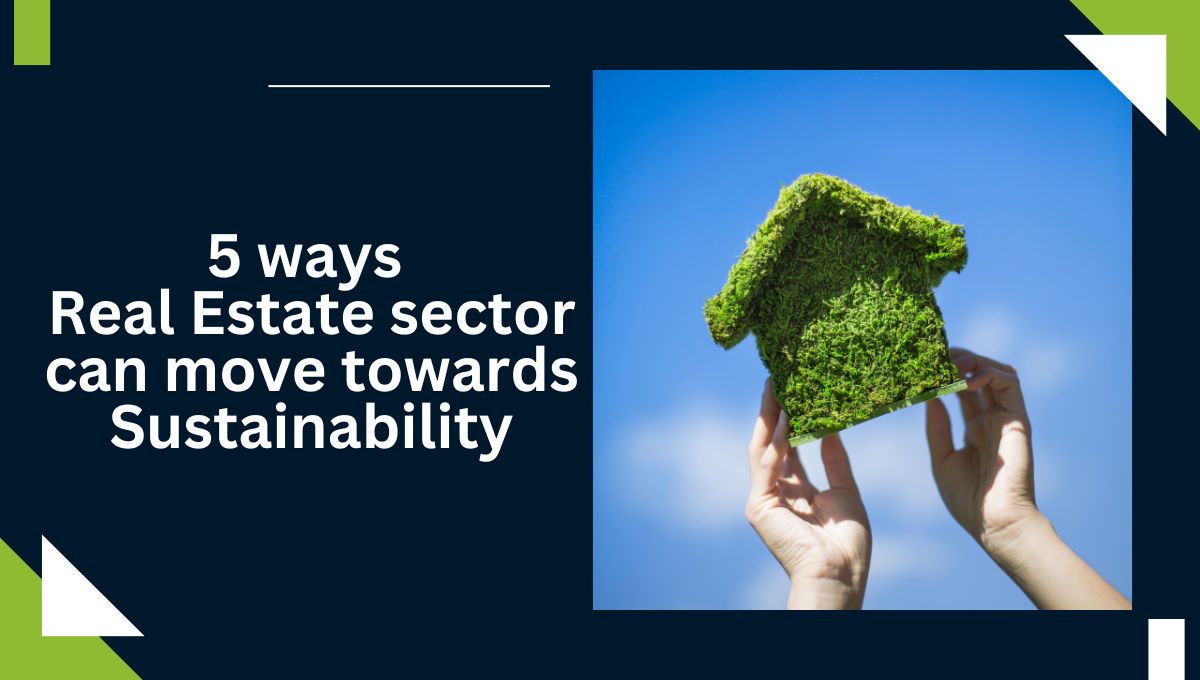5 ways real estate sector can move towards sustainability
Climate change is an ever-evolving threat. And the global real estate sector is a notorious contributor to carbon emissions, accounting for approximately 36 per cent of global energy consumption and 37 per cent of global CO2 emissions(1). To reverse the damage caused by the building and construction sector to the climate, policymakers are focusing on decarbonizing and moving towards sustainability by achieving the commitments made under the Paris Agreement and COP26.
The UAE is at the forefront of pursuing net-zero emissions. Rebounding from the pandemic, local real estate developers are keen on adopting eco-friendly, sustainable practices — from decarbonizing the existing infrastructure to constructing new state-of-the-art energy-efficient buildings — to contribute to the UAE’s green goals.
Here are some strategies the real estate sector can adopt to move toward sustainability.
- By going green
Going green is no longer a futuristic idea. Green buildings are a necessity today. With a heightened awareness and growing consensus across the board, the real estate sector is moving toward green buildings with the use of sustainable building materials, minimal non-renewable resources, and smart technologies. Most importantly, there is a conscious effort to minimize energy consumption from the design stage to life-cycle operations. - Standardising sustainability practices
Green building certifications add credibility to any residential or commercial property and show the developer’s commitment towards sustainable practices. To ensure the integrity of such efforts, Dubai Municipality has, under the name AL SA’FAT, created a Green Building Rating System. Such government-led, standardized practices are a welcome development. Besides, other intergovernmental organizations are also offering sustainable building certifications, including LEED, WELL Building Standard, Green Globes, BREEAM, etc. - Using renewable energy
Derived from various natural elements such as sunlight, wind, biomass, ocean, geothermal resources and biofuel, renewable energy is considered more sustainable compared to fossil fuels. Its adoption will not only reduce the GHG emissions associated with fossil fuels but also make energy more cost-effective. Governments need to launch initiatives to adopt more renewables in the real estate sector. It can be done using retrofitting. - Retrofitting of existing infrastructure
While it’s another thing to construct new sustainable buildings, it’s equally crucial to retrofit existing buildings, as they are in majority today. This can be achieved in several ways, including modifying lighting and HVAC systems, deploying renewable energy technologies (RETs), adopting innovative waste disposal methods, and investing in digital infrastructures like IoT-based smart building systems. As part of the energy efficiency program, Dubai Electricity and Water Authority (DEWA) plans to retrofit over 30,000 buildings by 2030, and it has already successfully refurbished over 10,000 buildings between 2016-2021(2). - Leveraging PropTech
From smart meters and sensors to advanced HVAC systems, cutting-edge technology is the key driver that can enable the real estate sector to achieve high energy efficiency and net-zero targets. By understanding the significance of digitalization, more real estate developers must leverage AI, ML, Big Data, 3D building models, and other property technologies (PropTech) for sustainable transformations. Technology has shown the greatest promise in achieving this feat.
No matter what strategy we adopt, decarbonization and achieving sustainability won’t happen overnight. It’s a journey that requires appropriate governance and multistakeholder participation with well-defined accountability policies and green rewards to reach the right destination: A sustainable, climate-considerate, low-carbon future.
- https://globalabc.org/resources/publications/2021-global-status-report-buildings-and-construction
- https://www.zawya.com/en/projects/projects-dubai-completes-retrofitting-over-10-000-buildings-to-date-eb5u3clo




